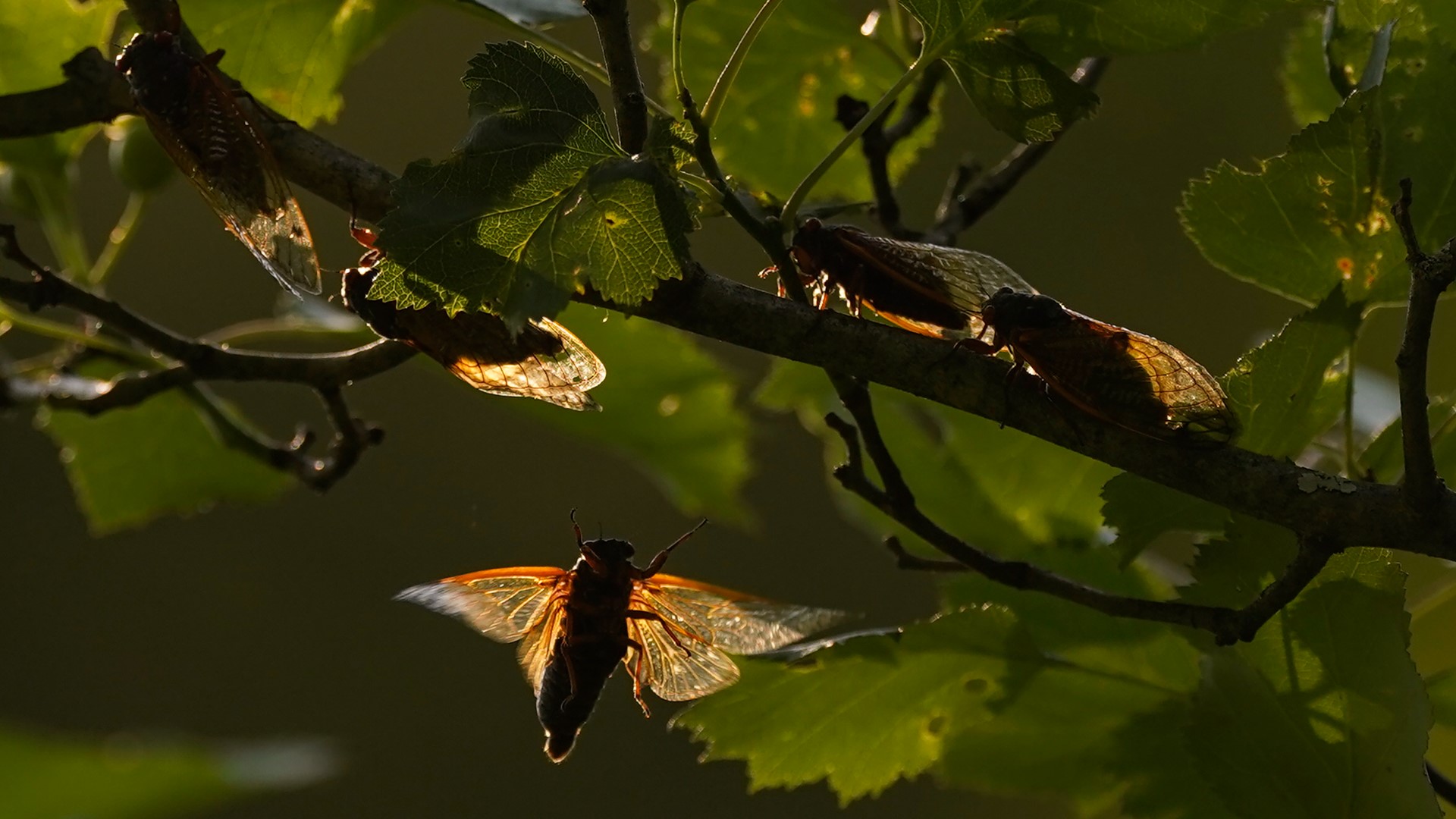IOWA, USA — This spring and summer, the buzz of the bugs outside may be a bit louder than usual in some parts of Iowa.
That’s because two different cicada broods will be emerging for the first time in over two centuries.
Iowa State University's Plant and Insect Diagnostic Clinic has been receiving dozens of questions about what to expect.
“They've been living under our feet for 13 or 17 years, just feeding on plant roots and feeding organic matter," said Zach Schumm, an insect diagnostician within the clinic. "They've been alive this whole time, right under our feet, but we'll just be experiencing the end of their lifecycle."
Iowans are used to seeing and hearing cicadas, but 2024 is a special year for a periodical cicada brood common to neighboring Illinois, known as brood XIII. The last time this brood emerged was in 2017.
Cicada brood XIX will also be emerging this year for the first time since 2011. The two broods have not emerged together since 1803 when Thomas Jefferson was president, making this phenomenon incredibly rare.
"We're never going to experience this, in Iowa, in our lifetimes again," Schumm told Local 5.
Those living near the Iowa-Illinois-Missouri borders should be prepared for a buzzing summer ahead. Schumm expects that these residents will be the only ones to see or possibly see both broods.
However, central Iowans aren’t completely out of the woods, as migration could bring small groups of the bugs this way.
Aside from their noisy nature, cicadas are not a threat as they do not typically bite or sting humans.
“They're not going to harm our trees, they're not going to harm us," Schumm said. “It's a temporary thing, it's an opportunity to, I think, get excited about them."
Given how warm of a winter Iowa has seen this year, the cicadas could begin to emerge as early as April, once the ground temperature reaches around 64 degrees.

